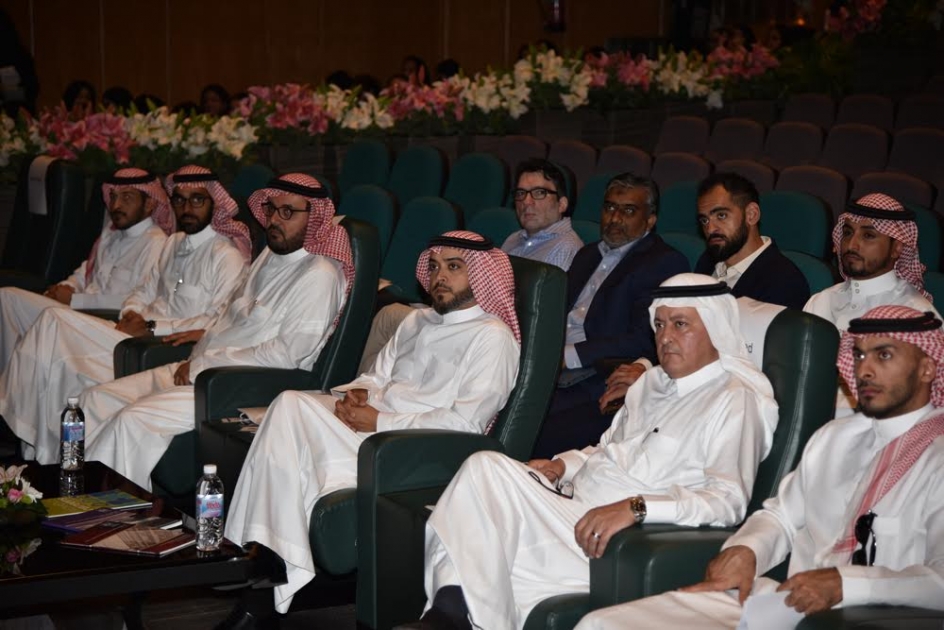
Prince Sultan University Students Outshine 129 Contenders to Win Pearl Initiative and Siemens’ GCC-wide Student Competition on Corporate Governance
A three-student team from Prince Sultan University in Riyadh won the Pearl Initiative 2016 Case Study Competition on corporate governance. Part of a collaborative long-term integrity programme between the Pearl Initiative and Siemens, the contest drew the participation of 51 student teams from 11 universities across the GCC region.
The competition annually challenges business students to prepare a short case study on integrity practices – including anti-corruption, ethical supply chain and anti-money laundering – in a GCC company of their choice. The exercise aims to foster student-business engagement, facilitate hands-on experience and highlight the importance of integrity to competitiveness in business.
An award ceremony at Prince Sultan University recognised Wed Hadhrawi, Leah Villarhemosa and Waad Al-Akeel, pursuing their bachelor’s degree at Prince Sultan University, for their excellent case study focused on ethical labour practices in ANB Invest Company, a fully-owned subsidiary of Riyadh-based Arab National Bank. The company offers custody, advising, arranging, underwriting and brokerage services. It also manages investment funds and discretionary portfolios.
Following the successful conclusion of the 2016 edition, the Pearl Initiative and Siemens announced that submissions for the 2017 Case Study Competition are now open. The companies invite all business students based in the GCC region to apply, demonstrate their creativity and business aptitude, and learn about the important aspect of corporate governance.
Speaking at the ceremony, Carla Koffel, Executive Director of the Pearl Initiative, said: “Exploring real-life case studies and conducting in-depth analyses of strategies that businesses in the GCC region are implementing provides students with much-needed practical experience to help them build their skillsets and hone critical thinking abilities. With the regional governments aspiring to develop knowledge-based economies that fuel innovation and resilience in business, the contest is an integral part of the Pearl Initiative and Siemens’s integrity programme that has reached 6,500 students across the GCC region since 2013.”
She added: “With more than three-quarters of the contenders – 101 out of 129 – being women, this is a strong indicator that our competition motivates all students equally to tap into their potential. I take this opportunity to congratulate not only our winners but all participants for their hard work, creative approach and insightful projects that highlight the best practices being adopted by the private sector in corporate governance and integrity across the region.”
Shadi Al Daoud, General Counsel, Head of Legal and Compliance at Siemens in Saudi Arabia, said: “The Siemens Integrity Initiative backs projects that encourage clean business and healthy competition, helping build the right environment for sustainable economic growth. With The Pearl Initiative, we look forward to yet another successful year where students learn about best practices in the private sector. In future, we hope they will take these examples and apply them in their professional lives, bringing a positive impact on the business environment in their country.”
Dr. Rimah Al-Yahya, the Vice-Rector, Prince Sultan University said: “At Prince Sultan University, we are dedicated to teaching our business students how to innovative and build resilient organisations in an evolving and digitizing economy. Corporate governance, integrity and accountability are some of the tools with which we can bring about the desired change – not only to workplace culture but its essence.”
She added: “We are grateful to The Pearl Initiative and Siemens for bringing this issue to the forefront – especially among the region’s ambitious youth – in such an engaging and practical way. I would also like to thank Dr. Ahmad Al-Yamani, Rector, PSU, the university’s higher management, faculty mentors and all the bright participants for their hard work. I also wholeheartedly encourage all eligible students to participate in the upcoming 2017 contest.”
Students Alanoud Aleisa, Dina Shibat Alhamd, Sarah Alshuwayrikh, also from Prince Sultan University, won second place for their comprehensive case study on avoiding conflict of interest and anti-money laundering compliance used by Banque Saudi Fransi. The third place was awarded to Salek Muyeen Akbar from Ahlia University, who submitted a study on the anti-money laundering measures implemented by Bahrain Financing company.
With the number of contestants increasing year on year, the 2016 Case Study Competition saw teams from Prince Sultan University in Saudi Arabia, Higher Colleges of Technology (HCT) Dubai and Zayed University in the UAE, and Ahlia University in Bahrain make it to the finals. The top 10 entries examined integrity and accountability practices across private and public sector organisations such as Arab National Investment Company, Bahrain Financing Company Banque Saudi Fransi, Etisalat, KPMG, Thales Security Solutions and Services, and UAE Exchange.



























